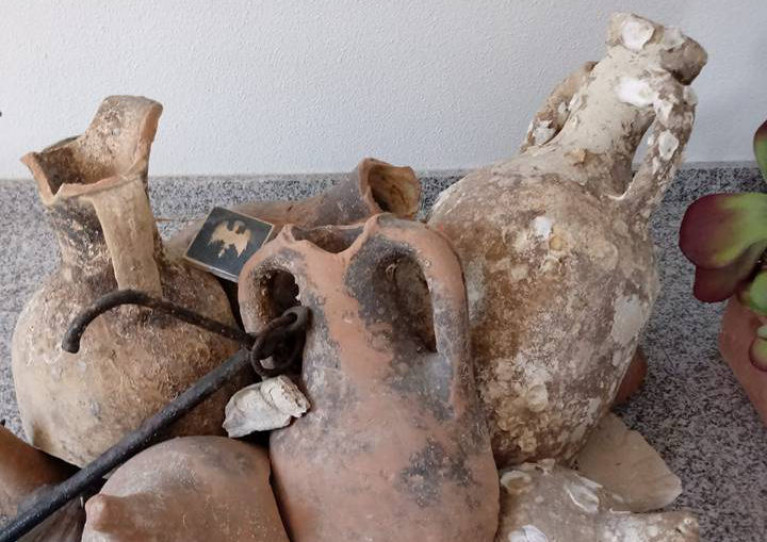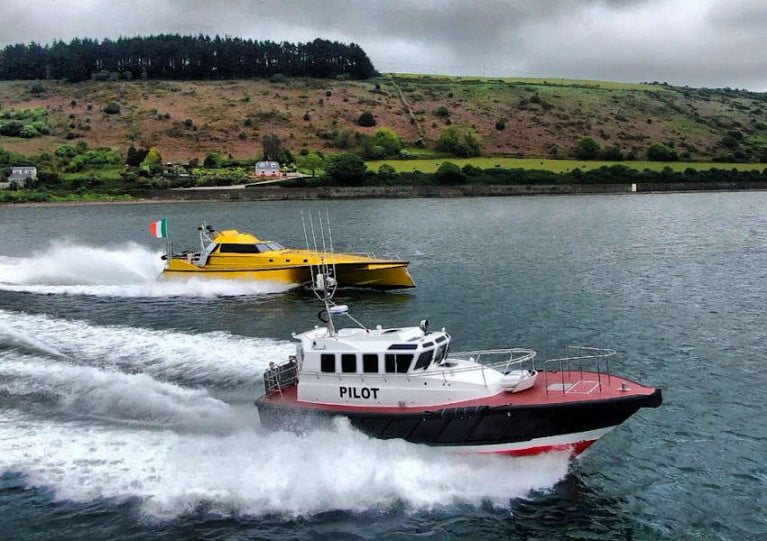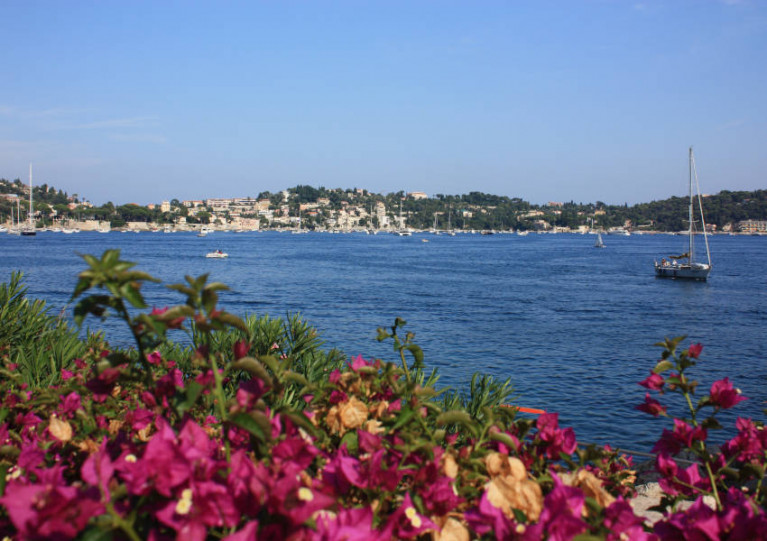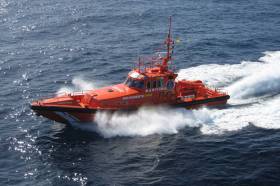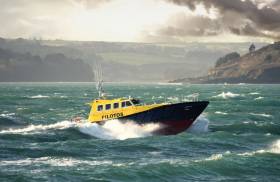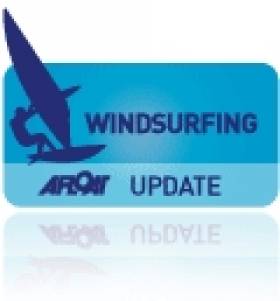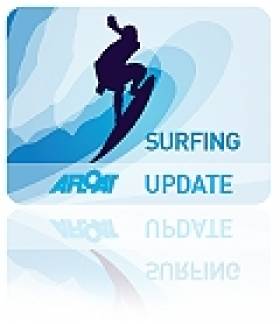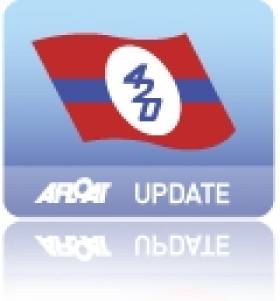Displaying items by tag: Spain
Ancient Roman Artefacts Found In Spanish Seafood Shop
A routine inspection of a frozen seafood shop near Alicante in Spain has revealed a trove of ancient Roman artefacts, as the Guardian reports.
Objects including a number of ceramic amphoras — receptacles for carrying oil and other liquids — had been taken from the water by the owner’s son on fishing trips in the Mediterranean and used to decorate the shop in Santa Pola, it has emerged.
The items were confiscated by the authorities and examined by experts at the local Museum of the Sea, who say they likely come from shipwrecks off the eastern Spanish coast and could date back nearly 2,000 years.
The Guardian has more on the story HERE.
Safehaven Marine has emerged from ‘lockdown’ with the launch of its new pilot boat for the Port of San Ciprian in Spain.
The Cork-based performance boat specialists put production on pause at the end of March, following strict Government restrictions on movement against coronavirus.
Almost completed at the time was the Interceptor 42 order for the fishing port in north-western Spain.
But as Safehaven tweeted yesterday, the boat is finally on the water for initial sea trials as the country begins its gradual reopening.
Safehaven Marine made the deal with the Spanish port — along with orders for Coruna, and Leixoes in Portugal — over a year ago, and more news is expected from the boatyard in the coming weeks.
Another recent delivery delayed by Covid-19 restrictions is an Interceptor 38 to the Port of Berbera in Somaliland, which was received in mid April.
Great to launch a new pilot boat for the Port of San Ciprian in Spain after nearly 2 months of Lockdown. She was nearly finished at the start of the lockdown and it was nice to be on the water again, even with social distancing @AfloatMagazine @LarryCpix @captainbob76 @MaryP972 pic.twitter.com/QqsEwhP31t
— Safehaven Marine (@SafehavenMarine) May 19, 2020
The first phase of Spain’s transition towards its ‘new normal’ amid the ongoing coronavirus pandemic saw boat owners yesterday (Monday 11 May) allowed to set their vessels free from moorings, as International Boat Industry reports.
‘Non-commercial cruising’ in limited groups, such as a family or people who share the same address, is limited to local waters only.
But the move will come as a relief to many recreational boaters who had been kept away from their vessels under a 50-day lockdown, one of the most restricting in Europe along with Italy.
Boat charter and rental is also permitted under the latest relaxing of regulations, with further allowances — to move outside of one’s municipality for safety and maintenance checks, for instance — expected to come with the next phase on Monday 25 May.
Neighbouring France has followed suit with its own easing of lockdown measures, which allow for navigation and mooring within 100km of home port with no more than 10 passengers on any vessel.
But the entry of vessels with a foreign flag from a port outside the Schengen zone into French territorial waters, if the destination is a port on the French coast, remains prohibited until at least next month.
And Spain’s border remains closed to all non-essential travel, with a 14-day quarantine mandated for anyone entering the country.
Irish Crew Rescued After Motor Yacht Sinks Off Northern Spain
The Irish crew of a motor yacht were rescued after their vessel took on water and sank off the coast of Northern Spain on Friday (9 August).
Afloat.ie has learned from its skipper Vincent Duke that the Sujo, a Maltese-registered Fisher 37, was en route from A Coruña to Valentia Island at around 2am on Friday morning when a catastrophic failure of its stern gland cased the vessel to flood north of San Cibrao.
Duke and his crew Fergus Comerford and Mariusz Rozmus were picked up from their half-sunken vessel by the Spanish search and rescue vessel Salvimar Alioth.
The fate of the boat since the incident is currently unknown, as reported by regional newspaper La Voz de Galicia.
Safehaven Marine Makes Deal With Two Spanish Ports After Latest Pilot Boat Delivery to Portugal
Following delivery of their latest pilot boat for the Port of Leixoes in Portugal, the Cork Harbour performance boat specialsts at Safehaven Marine announced the signing of contracts with two Spanish ports.
The port of San Ciprian has contracted for an Interceptor 42 pilot vessel while the larger Port of Coruna to the south-west has commissioned an Interceptor 48 pilot. Both are to be delivered in mid 2020.
Safehaven Marine says its pilot craft have proven very popular in the Iberian Peninsula.
Once these latest commissions are delivered — and the ports of Gijon and Algeciras begin undertaking pilot transfers with their own Interceptors — Safehaven will have 14 pilot boats working in the peninsula.
Both new contracts were signed simultaneously after pilots from Coruna and San Ciprian were impressed by sea trials of the new Leixoes pilot, named Lada, on delivery last month.
Yacht Capsizes in Surf at Spanish Port of Zumaia
#capsize – A Bavaria 38 yacht, with seven crew on board, enters the narrow channel leading to the port of Zumaia on the Basque coast of Spain this month with dramatic consequences. 'The swell is of medium size, the operation is dangerous, but passable' according to local photographer Gabi Aymat who shot this dramatic capsize video.
A huge wave sweeps on to the boat and rolls it over knocking some of its untethered crew over board. The good news is that the crew survived and the boat is also safe, surviving its roll without any serious damage, according to Aymat.
Storm Chase Mission 2 Abandoned At Last Minute
#Windsurfing - Mission 2 of the Red Bull Storm Chase to Galicia has been abandoned at the last minute due to an unstable weather forecast for the coast of northern Spain.
It's a big blow to the six waveriders who qualified for the second-stage of the global windsurfing challenge after three rounds of exciting competition in Brandon Bay less than two months ago.
The storm-force winds that swept the Kerry coast at the end of January provided the perfect conditions to test the mettle of the brave sailboarders who took to the water at the 'Dumps' ad 'Hell's Gate'.
Of the ten-strong field, six survived to advance to the second round - Marcilio Browne, Dany Bruch, Victor Fernandez, Robby Swift, Julien Taboulet and Thomas Traversa.
And Red Bull have posted a video compilation of highlights of all the action from Mission 1 in Kerry, which you can see below:
Surfers Swarm on Sligo for Year's Biggest Waves
#SURFING - The Irish Times reports that surfers from around the world are flocking to Sligo in expectation of what might be Ireland's biggest waves of the year.
Breakers of up to 30 feet off Donegal Bay could be the result if growing swells in the Atlantic combine with southerly winds expected from this weekend.
“We have had 50ft waves in the past but 30ft waves would certainly be great and you would have a lot of surfers coming into Ireland to follow them," said top Irish surf pro Richie Fitzgerald.
Elsewhere, President Michael D Higgins made a recent visit to the Somo Surf Centre in Cantabria, northern Spain while attending Spanish courses ahead of his State visit to South America last month, as Oceanlook reports.
“I had already heard of the charms of Loredo and Somo," the President commented. "There are many Irishmen flying to Cantabria in search of sun and also waves to get the chance to surf.”
Irish Showing Strong at 420 Copa de Espana
#420 - The Irish are making a strong showing at the Copa de Espana for the 420 class this week at Club Nautico el Candado in Malaga.
Lizzy McDowell and Cara McDowell from Malahide Yacht Club are the best of the pack so far in 20th position after four regattas on 30 points. Just behind them are the duo of Adam Hyland and Bill Staunton from the Royal St George Yacht Club on the same points.
Robert Dickson and Sean Waddilove of Howth Yacht Club are holding fast in 66th place on 85 points, not letting a disqualification in the third race faze them too much.
Meanwhile, Kate and Alanna Lyttle - also from the Royal St George - round out the Irish field in 79th position.
With eight regattas remaining in the competition, the action is only just warming up!
Make or Break Time for Fish Discards Ban
#FISHING - The Guardian reports that an alliance of EU member states plans to "hijack" a council meeting of the union's fisheries ministers today to prevent a ban on fish discards.
EU maritime affairs commissioner Maria Damanaki has stated her commitment to ending the practice, describing it as “unethical, a waste of natural resources and a waste of fishermen’s effort.”
Half of all fish in the North Sea - and up to two-thirds in other areas - are thrown back under the quota system implemented under the EU's common fisheries policy. The practice was recently highlighted by TV chef Hugh Fearnley-Whittingstall's 'Fish Fight' campaign.
Minister for the Marine Simon Coveney has called on EU states to support Ireland's effort to deal with fish discards, as previously reported on Afloat.ie.
But some member states, led by France and Spain, have dismissed the proposed ban as "unrealistic" and "too prescriptive", and will attempt to pass a declaration to allow the practice to continue indefinitely.
According to the Guardian, the charge is being led by industrial-scale fishing enterprises who want to retain the permission to discard lower value fish in order to maximise profits.
Brussels insiders say that if the declaration were to pass it would "kill the reform".



























